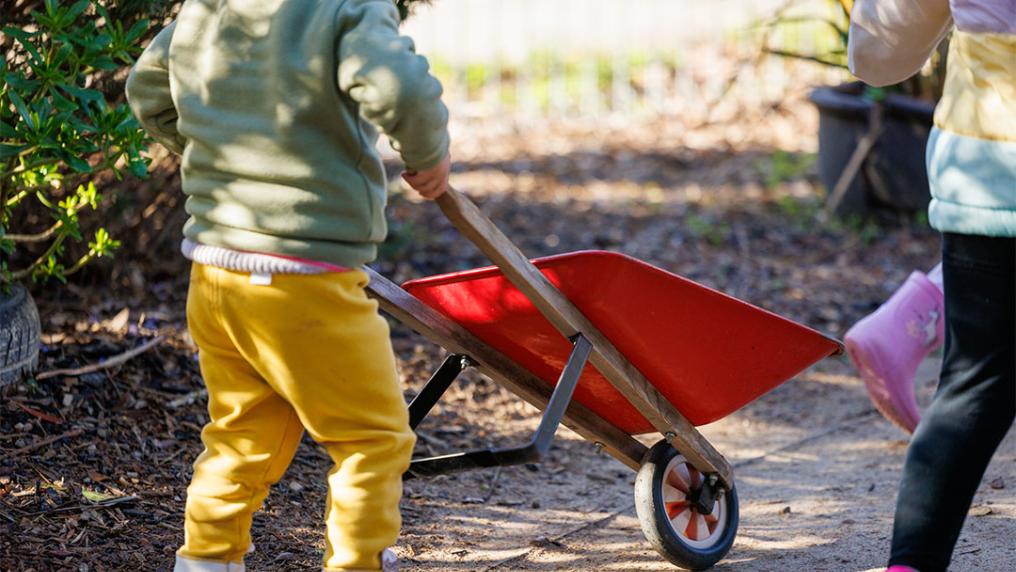New research shows the disadvantage ‘achievement gap’ starts before preschool

New research from Victoria University’s (VU) Mitchell Institute shows the ‘achievement gap’ – a persistent difference in education outcomes by socioeconomic background - begins at two to three years and by the time children reach school has become entrenched.
Released today, the report, Unequal from the start: The achievement gap and the early years, examined data from the Longitudinal Survey of Australian Children (LSAC) and NAPLAN to follow the learning trajectories of children. It shows even the disadvantaged children who perform well at a very young age are overtaken by their peers from more advantaged backgrounds as they move towards school age.
Mitchell Institute Director, Professor Peter Hurley said the report highlights just how uneven the playing field currently is for Australian children.
“We need to take a child-centred, needs-based approach to the design and funding of education and care services right from the start,”
Professor Hurley said.
The Child Care Subsidy (CCS), the dominant funding model for early childhood education and care in Australia, and the only model for services for children below preschool age, is a market-based model which follows parent demand. The subsidy recognises socioeconomic differences in terms of families’ ability to pay - but doesn’t address those socioeconomic differences when it comes to service provision and children’s need – like the public school system does.
The report shows it is the centres in the most advantaged parts of Australia that receive the most money because they can charge higher fees.
The report also highlights how the home environment can impact later academic results like NAPLAN – including parental involvement, parental mental health, the number of books in a household and more.
“This shows the complex nature of children development and the need for an approach that goes beyond simply subsidising attendance at childcare services,”
Professor Hurley said.
The policy message is clear, not only are the early years important, but the first three years of life are crucial. The findings show the need to focus on our efforts on how, when and where child receive education and care services and how connected these are with other supports, in order to give every Australian child the best start in life.
To do this, the report recommends taking a ‘child-centred approach’ with better linkages between early childhood services and reforming funding based on children’s needs.
“There have been great gains in making early childhood services more affordable to more families in recent years through a series of reforms, but that’s only one side of the coin,”
report co-author Sarah Pilcher said.
“Without a greater focus on equity in the earliest years, Australia is going to be hamstrung in its efforts to stop the achievement gap that is happening in our schools.”
Contact us
Gemma Williams
Media and Communications Manager, Research and Impact
+61 401 664 047 [email protected]


